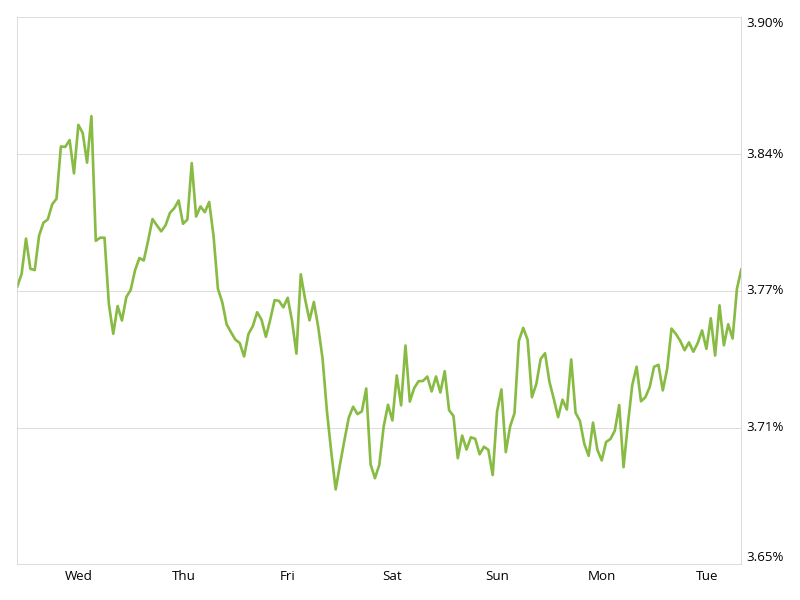CFPB Director: PHH Corp. took kickbacks for mortgage insurance referrals
Consumer Financial Protection Bureau Director Richard Cordray issued a decision in the first appeal of a Bureau administrative enforcement proceeding.

The director's decision concludes that PHH Corp., a mortgage lender, illegally referred consumers to mortgage insurers in exchange for kickbacks.
He also issued a final order that prohibits PHH from violating the law and requires it to pay $109 million to the bureau.
Cordray issued a decision upholding in part, and reversing in part, Administrative Law Judge Cameron Elliot's November 2014 Recommended Decision, which held that PHH violated the Real Estate Settlement Procedures Act when it accepted kickbacks for loans that closed on or after July 21, 2008. Those kickbacks took the form of mortgage reinsurance premiums that the mortgage insurers paid to a subsidiary of PHH.

A spokesperson for PHH Mortgage issued the following statement today.

"We strongly disagree with the decision of the Director. We believe this decision is inconsistent with the facts and is not in accord with well-settled legal principles and interpretations. We continue to believe we complied with RESPA and other laws applicable to our mortgage reinsurance activities," the statement from PHH reads. "The Company did not provide reinsurance on loans originated after 2009. We intend to file an appeal to the United States Court of Appeals. While there can be no assurances as to the final outcome of any such appeal, we believe our appeal will be successful and, as a result, are not adjusting our previously issued earnings guidance for this matter."

Cordray's decision held that PHH violated RESPA every time it accepted a kickback payment on or after July 21, 2008 - going beyond Judge Elliot's ruling, which had limited PHH's violations to kickbacks that were connected with loans that closed on or after July 21, 2008.
Cordray issued a final order that requires PHH to disgorge $109 million - all the reinsurance premiums it received on or after July 21, 2008.
The order also bars PHH from violating the provision of RESPA that forbids kickbacks. In addition, it prohibits PHH from referring any consumer to a provider of a real estate settlement service if that provider has agreed to purchase any service from, or make any payment to, PHH, and if that purchase or payment is triggered by the referral.
In issuing his decision and final order, Cordray denied the appeal filed by respondents PHH Corp., PHH Mortgage Corp., PHH Home Loans LLC, Atrium Insurance Corp., and Atrium Reinsurance Corp. He also granted in part, and denied in part, an appeal filed by the Bureau's enforcement counsel.
[Updated 4:35 p.m. ET with company statement.]
http://www.housingwire.com/articles/34100-cfpb-director-phh-corp-took-kickbacks-for-mortgage-insurance-referrals
Unique, and uniquely expensive, hotel to open soon in Midtown
Inside the Ivy Hotel at North Calvert and East Biddle streets, a curved staircase rises three stories past leaded windows, leading to rooms with canopied beds, fireplaces and bathrooms with heated French limestone floors and deep tubs.
Set to open in mid-June, the tiny hotel in a converted mansion underwent a makeover costing in excess of $18 million. It will be one of only two Baltimore hotels in its price range, with 18 rooms and suites ranging from $475 to $1,475 a night. A few suites at the Four Seasons Hotel Baltimore command even higher rates.
"Everyone might not recognize it, but we think Baltimore is ready for this," said David W. Garrett, managing director of the Ivy Hotel. "We think this will be one of the finest urban hotels in the country."
Yet some observers wonder if it's possible for a hotel to command such prices in a location not far from the Baltimore City Detention Center and with views of the Johnston Square neighborhood from at least one room.
"I think it's very ambitious for Baltimore," said Rod Petrik, a hospitality industry analyst for Stifel Nicolaus Co.
The city's hotel market is generally weak, he said, with both luxury and middle-of-the-road hotels sometimes unable to command the rates they desire.

The Ivy Hotel's 35,000 square feet began life as a Gilded Age brownstone at the corner of Biddle and Calvert streets that was commissioned by prominent banker John Gilman, who died right before it was completed. After living there several years, Gilman's widow sold it to William Painter, an inventor and president of Crown Cork and Seal Co., a longtime Baltimore manufacturing stalwart.
It passed through a couple of other wealthy families before the city began using it in the 1980s as the Inn at Government House to house visiting dignitaries. The new hotel complex includes a new addition and two adjacent brownstones, with its formal entrance moved to Biddle Street.
Two families of investors who previously collaborated to restore the Bromo Seltzer Tower as artists' studios, the Azolas and the Browns, bought the property in 2012 for $750,000. The principals include Eddie Brown, chairman and CEO of Brown Capital Management, whose office is one block north of the hotel.
Martin Azola, who has been restoring historic properties for 40 years and who sits on the board of the Maryland Historical Trust, called the Ivy Hotel "the culmination of that career."
The hotel's guest rooms include cozier spaces that lead to a new balcony and a courtyard, and large suites tucked into the alcoves of the former attic. Each room features a California king-size bed, and turn-down service is standard with different fresh 400-thread-count linens every night.

The decor of every room is unique, with one-of-a-kind art, different color palettes, animal skin rugs, custom built-in cabinets and decorative items like large geodes. Coffeemakers are hidden inside hand-painted cabinets, each of them done by a different Maryland Institute College of Art student.
Some 60 artists and artisans worked on the hotel, Garrett said.
Guests may access a full-service spa with massages and several sumptuous common rooms including a library, a music room and a conservatory with African-style masks and decorations. Architectural details from the original mansion survive, including intricate, hand-painted molding on the walls of a former library turned breakfast room.
The room rates include breakfast, afternoon tea, a car and driver, gratuities and other amenities, everything except dinner and spa services. Its website likens the experience to staying "at the home of a generous friend."
The Ivy will not be associated with any hotel flag or brand, said Garrett, who once headed the luxury Relais Chateaux association of high-end, individually owned hotels. The closest is the Inn at Little Washington in Virginia.

Garrett said the Ivy Hotel "exceeds most any other project I've ever worked on."
The hotel also will feature a modern American restaurant called Magdalena that will be open to the public. The restaurant's Spanish theme was inspired by a John Singer Sargent painting of a dancing woman, which is replicated on a wall by the entrance. It uses part of the former mansion's basement, and one dining room contains an original wall safe made by Baltimore-based Miller Safe and Iron Works, which went out of business in the early 1900s.
Garrett declined to say how much was spent on the renovations but said it was "well in excess" of $18 million. Azola said the final figure is still being determined. Brown did not respond to a request for comment on the project.
While Petrik is skeptical such a hotel can lure travelers in Baltimore with room rates in that range, he acknowleges that luxury boutique hotels are booming.
"The concept makes sense, it's just whether or not you can get the rates that they need," Petrik said. "But boutique hotels are one of the fastest growing segments in the lodging industry. There are more business and leisure travelers that don't want the big brand box hotels. There's no appeal to the convention hotels if you're not attending a convention."
The walkability of the Mount Vernon and Midtown-Belvedere neighborhoods would be a bonus, he said, adding that it would be critical for the Magdalena to turn a profit.
Jason Curtis, president of the Mount Vernon-Belvedere Association and general manager of Hotel Indigo in Mount Vernon, called the Ivy Hotel "a really cool unique concept."
"I think there is a niche for that particular market that I think is untapped in Baltimore City," he said. "I think it could be very successful. I hope that the guests of the hotel will be out and about and supporting the neighborhood."
Curtis said he thought the hotel could spur more business development along Calvert and St. Paul streets and would benefit bars and restaurants like Iggies and a bar under construction in an old firehouse on Calvert Street.
"I think it'll be a lot more growth on that side of the neighborhood," he said.
While there are some other boutique hotels in Baltimore, their rooms go for hundreds of dollars less than what the Ivy plans to ask. Only the Four Seasons has rooms costing more with water-view executive suites starting at $1,500 a night, others going for $2,000 and $2,500, and three, including the Presidential Suite, requiring a call to the hotel.
Azola said the project, which received about $2 million in federal historic tax credits, was difficult and complicated. For example, he said, the team bought a three-ton mantelpiece from a castle in France, which traveled halfway across the Atlantic Ocean before they determined the floors could not handle its weight. It was an expensive mistake, but in the end he thinks the investment is worth it.
http://www.baltimoresun.com/business/real-estate/bs-bz-ivy-hotel-20150525-story.html?track=rss
Lehman Brothers suing over crisis-era toxic mortgages
Lehman Brothers Holdings filed suit against Syncora Holdings, U.S. Bancorp (USB) and GreenPoint Mortgage Funding in an effort to try to get "duplicate" claims filed by those three companies against Lehman Brothers thrown out because Lehman Brothers is ready to settle and move on.

According to a report from the Wall St. Journal, Lehman Brothers bought crisis-era mortgage loans from GreenPoint Mortgage, which is now owned by Capital One Financial (COF). Many of the loans went into default and then set off a now-familiar series of events of suits and countersuits with each party trying to get their money back.
+Eatonton+Georgia+Minchey+Properties+Century+21+Real+Estate+Office
From the WSJ:
At issue is a structured-finance transaction where Lehman bought mortgage loans made by GreenPoint, and through a process of financial engineering, transferred the loans to a trust which then issued notes backed by the loans.
Syncora, the monoline insurance subsidiary of Syncora Holdings, sold insurance to the trust, GreenPoint Mortgage Funding Trust 2006-HE1, that guaranteed payments of principal and interest to investors. U.S. Bank is the trustee for those trusts.
Many of the mortgage loans, made at the tail-end of the housing bubble, went into default, putting Syncora on the hook for the shortfall in payments to investors.

According the WSJ report, Lehman has set aside more than $600 million to pay out the initial claims.
"These claims, which Lehman has been trying to resolve over the past two years, continue to impede the administration of the plan and the orderly distribution of assets," Lehman said in the filing, as reported by the WSJ.
http://www.housingwire.com/articles/33979-lehman-brothers-suing-over-crisis-era-toxic-mortgages
Yellen: If nothing changes, expect higher interest rates this year
As predicted by many economists, the Federal Reserve is indeed considering raising the Federal Funds Rate later this year, Fed Chair Janet Yellen said Friday.
In a speech at the Providence Chamber of Commerce in Providence, RI, Yellen said that the Fed is seeing widespread economic improvement and expects that improvement to continue. And if the economy improves as expected, she believes it will be "appropriate" for the Fed to raise the Federal Funds Rate this year, which in turn, would affect mortgage interest rates.
"Because of the substantial lags in the effects of monetary policy on the economy, we must make policy in a forward-looking manner. Delaying action to tighten monetary policy until employment and inflation are already back to our objectives would risk overheating the economy," Yellen said.
"For this reason, if the economy continues to improve as I expect, I think it will be appropriate at some point this year to take the initial step to raise the federal funds rate target and begin the process of normalizing monetary policy," Yellen said. "To support taking this step, however, I will need to see continued improvement in labor market conditions, and I will need to be reasonably confident that inflation will move back to 2% over the medium term."
Yellen said that the labor market is "approaching" its full strength but not there yet. Her comments set off a firestorm in the media, with the Washington Post calling her words "affirmation" that higher rates are coming soon.
"I say 'approaching,' because in my judgment we are not there yet. The unemployment rate has come down close to levels that many economists believe is sustainable in the long run without generating inflation," Yellen said.
"But the unemployment rate today probably does not fully capture the extent of slack in the labor market. To be classified as unemployed, people must report that they are actively seeking work, and many people without jobs say they are not doing so--that is, they are classified as being out of the labor force," Yellen said.
"Most people out of the labor force are there voluntarily, including retirees, teenagers, young adults in school, and people staying home to care for children," Yellen continued. "But I also believe that a significant number are not seeking work because they still perceive a lack of good job opportunities."
Despite those issues, Yellen said she the labor market is improving.
"Putting it all together, the economic projections of most members of the Federal Open Market Committee call for growth in real gross domestic product of roughly 2.5% per year over the next couple of years, a little faster than the pace of the recovery thus far, with the unemployment rate continuing to move down to near 5% by the end of this year," Yellen said. "And for inflation, as I noted earlier, my colleagues and I expect inflation to move up toward our objective of 2% as the economy strengthens further and as transitory influences wane."
Yellen said if and when the Fed raises rates, she expects the "pace of normalization" to be gradual.
"The various headwinds that are still restraining the economy, as I said, will likely take some time to fully abate, and the pace of that improvement is highly uncertain," Yellen said. "If conditions develop as my colleagues and I expect, then the FOMC's objectives of maximum employment and price stability would best be achieved by proceeding cautiously, which I expect would mean that it will be several years before the federal funds rate would be back to its normal, longer-run level."

Yellen said that despite her expectation that the Fed will engage in raising rates this year, the actual course of Fed policy will continue to be determined by the incoming economic data.
"We have no intention of embarking on a preset course of increases in the federal funds rate after the initial increase. Rather, we will adjust monetary policy in response to developments in economic activity and inflation as they occur," Yellen said. "If conditions improve more rapidly than expected, it may be appropriate to raise interest rates more quickly; conversely, the pace of normalization may be slower if conditions turn out to be less favorable."
http://www.housingwire.com/articles/33981-yellen-if-nothing-changes-expect-higher-interest-rates-this-year
House Hunting for Two: How to Find Your Happy Home
 ShutterstockBy Vanessa Nix Anthony
ShutterstockBy Vanessa Nix AnthonyWhile it can be tough enough to find just the right spot to rest your head at night on your own, it can be even more difficult when searching with a partner. Choosing where you'll live, whether you're renting or buying a home, is one of the most important and personal decisions you'll ever make.

It's the definition of complicated: the extra weight of the long-term commitment that sharing a living space brings. That means good communication is key.
"Moving in together is a huge commitment, perhaps more than a marriage itself, because it's a substantial financial commitment to each other," author and counselor Kerry Cohen says. "Any issues each person has around commitment, both in general and with each other, are surely going to come up."

She advises couples to be prepared when looking for a place together.
"There will likely be arguing or maybe even hurt feelings," Cohen says. "A lot of who a person is comes to the surface when buying a house -- how detail oriented, how controlling, aesthetics, etc."
Just because the potential is there for emotions to run high doesn't mean they have to. Not if you take the time to do a little home-shopping prep. Here are a few do's and don'ts, straight from the experts.
DO: Expect Feelings to Be on the Surface
Every expert we talked to brought up how emotional the home-selection process can be. And that makes sense, especially for buyers. C'mon: we're talking about one of the biggest investments you'll ever make, in both time and money. Things are guaranteed to get heated.
Setting clear expectations and communicating clearly and kindly throughout the process will go a long way toward defusing volatile emotions.
DO: Communicate Openly and Often
Joan Rogers, a principal broker at the Portland agency Windermere Stellar in Oregon, recommends that clients identify their old emotional pulls before starting the home search. "As with most other emotional processes, people carry all kinds of baggage into buying a home." Use collaborative tools such as Trulia's new boards to share properties that you find in real time.
DO: Understand What You Both Want in a Home and Why
Amber Salvador, a clinical psychologist at Sharp Mesa Vista Hospital in San Diego, suggests both parties make a list of their top three to five must-haves, then compare their lists and prioritize for budget and neighborhood before heading out on the search.
When searching for homes, make sure your list reflects who you are now as well as who you think you'll be in five years, rather than clinging to old ideas of who you once were. The key component to success in agreeing on living arrangements is to make sure you truly understand why you want what you think you want.
DO: Be Willing to Compromise
"Be flexible. It's important to be collaborative and work together versus against one another," offers Salvador.
As Mick Jagger sings, "You can't always get what you want, but if you try sometimes," with a little compromise and understanding, "you might find, you get what you need."
DON'T: Be Impulsive
"Impulsive decisions are typically made based on emotions," says Salvador. "A major financial decision such as buying a home requires thought, preparation, and planning to carefully decide the most appropriate home given the couple's budget, lifestyle, and needs."
DON'T: Spend More Than Your Budget
The heightened emotions during the home search can also persuade you to spend more money than your budget may be able to bear. This can lead to long-term consequences in the partnership. Salvador says it's essential that you choose a new home together based on rational decision making instead of emotional desires.

DON'T: Manipulate Your Partner to Get What You Want
Your home should be a place where you both feel comfortable. Manipulating, lying, or bullying your partner to get more of what you want in a home can lead to resentments down the road when money is needed for repairs or upgrades to features that weren't jointly agreed upon.
http://realestate.aol.com/blog/2015/05/15/house-hunting-for-two-find-home/
Mortgage Rates Edge Downward to 3.77%
 ZillowThe weekly mortgage rate chart illustrates the average 30-year fixed interest rate in six-hour intervals.By Lauren Braun
ZillowThe weekly mortgage rate chart illustrates the average 30-year fixed interest rate in six-hour intervals.By Lauren BraunMortgage rates for 30-year fixed loans fell this week, with the current rate borrowers were quoted on Zillow Mortgages at 3.77 percent, down 5 basis points from the same time last week.
The 30-year fixed mortgage rate fell early in the week, then hovered around 3.71 percent before rising to the current rate on Tuesday. Hawaii saw 30-year fixed rates as low as 3.67 percent.
"Rates fell late last week as a string of weak data raised concerns about the underlying strength of the U.S. economy," said Erin Lantz, vice president of mortgages at Zillow. "This week markets will look to a few Fed speeches and minutes from April's Federal Open Market Committee meeting for further guidance."

Additionally, the 15-year fixed mortgage rate was 2.91 percent, For 5/1 ARMs, the rate was 2.84 percent.

Check Zillow Mortgages for rate trends and up-to-the-minute rates for your state, or use the mortgage calculator to check monthly payments at the current rates.


http://realestate.aol.com/blog/2015/05/19/mortgage-rates-down-3.77-percent/
Mortgage Rates Continue Modest Rise to 3.82%

Zillow
May 12th 2015 2:59PM
Updated May 12th 2015 4:59PM


 ZillowThe weekly mortgage rate chart illustrates the average 30-year fixed interest rate in six-hour intervals.By Lauren Braun
ZillowThe weekly mortgage rate chart illustrates the average 30-year fixed interest rate in six-hour intervals.By Lauren BraunMortgage rates for 30-year fixed loans rose this week, with the current rate borrowers were quoted on Zillow Mortgages at 3.82 percent, up 9 basis points from the same time last week.
The 30-year fixed mortgage rate fell Friday, then hovered around 3.69 percent before rising and settling at 3.82 percent Tuesday morning.
"Rates surged over the past week due to strong European data," said Erin Lantz, vice president of mortgages at Zillow. "Looking ahead, we expect mortgage rates to continue in their gradual march upward."

Additionally, the 15-year fixed mortgage rate was 2.98 percent. For 5/1 ARMs, the rate was 2.78 percent.
Check Zillow Mortgages for rate trends and up-to-the-minute mortgage rates for your state, or use the mortgage calculator to calculate monthly payments at the current rates.

http://realestate.aol.com/blog/2015/05/12/mortgage-rates-continue-modest-rise-3.82-percent/

